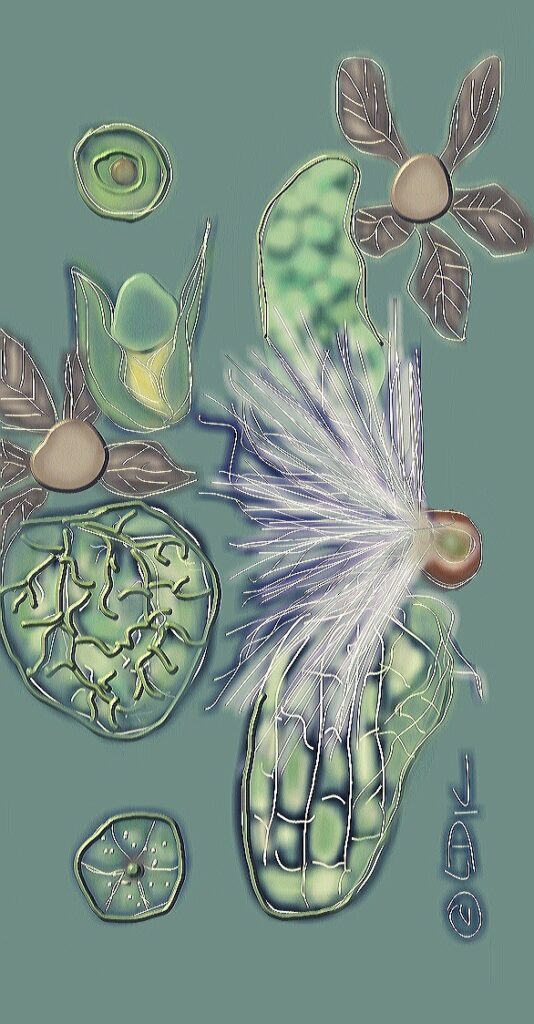For Millenia, farmers around the world have always reserved seeds from the last harvest for planting the next food crops.
The reservation of seeds (for example; oats, corn, rice etc) is therefore a traditional practice.
Many Developed Nations have established Seed Banks by way of provision for Major Disasters /crisis situations affecting planet Earth in a Global context.
However, Developing Third World Countries have not made sufficient provision for Seed Banks in order to be able to ensure continuity of their Traditional food crops. This failure to plan for diminished harvests or total crop failure in the future, places their communities at heightened risk in the event of severe drought or repeated crop failures.
The failure of Traditional crop yields because of Climate Change, will have an adverse affect on the food security of communities across several countries, including affecting the cultural diet.
A singular effect of Climatic change is that crops will wither and fail to produce a good or moderate harvest; the increased periods of drought alone that are being faced by various countries across the planet are enough to badly affect crops and result in a poor harvest.
The expectations of communities after they have completely laboured on difficult soil, will become blighted by a diminishing harvest with the high possibility of reoccurring and dangerously low crop yields upon a year in year out basis.
One consequence is that a large majority of Farmers are likely to leave their fields and migrate to the towns and cities.
Crop failure leads to Food insecurity for both families and communities.
A repeated failure of harvests often entices Farmers to feed their families on the “seed corn” reserves. This reaction to a failed harvest is also instrumental in accelerating food shortages which result in economic disaster for entire communities.
Climate Change such as extended dry seasons is already affecting the normal cycle of sowing crops and harvesting them to the point of seriously undermining the volume of both regional and global food supply. Alongside of that, crop failures are eliminating the food crops of various plant species which are Indigenous to particular areas/regions and nations.
Plants that are Indigenous to particular regions because of their genetic composition are usually more hardy and are more likely to survive in a changing environment.
However, Indigenous plant/crops will also succumb to severe drought and increasingly fluctuating changes in weather patterns and as a result will become at high risk of extinction.
Nations should endeavour to protect their Indigenous plant species.
In a climatically changing environment, these hardy Indigenous plant species/crop varieties in their undisturbed/unaltered wholesome plant DNA sequence/ state may actually become some of the only crop(s) which can still be farmed successfully whilst providing some kind of harvest to be able to sustain all living beings across the planet at even the most minimal rate even during harsh climatic weather fluctuations.
Accordingly, Farming communities must pay particular attention to conserving the seeds of their Traditional food crops since their plant species offer a greater degree of successful harvest in a rapidly changing environment, (and also, especially if they wish to sustain themselves in historical, cultural and ethno-ecological way which does not harm the life-spans of their genetic sequencing over time).
Both the establishment and the operation of Community Seed Banks are primarily aimed at the goal/objective of ensuring future harvests beyond the next crop yield so as to provide a resource for future years-where a harvest may be much more diminished or result in a total failure, due to scenarios such as drought, or other Climatic events; and in such circumstances, seeds can be borrowed from the Seed Bank.
Rural Farmers in Zimbabwe are reacting to Climate Change by establishing Community Seed Banks; after each harvest, the seeds reserved from the successful harvest are held in storage to the account of the Farmer; in the event of a future crop failure, the Farmer is able to call down seeds from his Account and persevere in his farming endeavours of planting the next crop.
In other words, the operation of a Seed Bank creates a seed resource for planting fresh crops in the following season. Individual Farmers are able to borrow seeds on credit in their undertaking to replace the seeds that were borrowed once the crop is harvested.
A bountiful harvest will enable a successful Farmer to both replenish the amount of seeds “borrowed” and also to make an “added Deposit.”
Substantial seed deposits at the seed Bank means that the large quantity of seeds are readily available for use/utilisation by other members of the community in times of hardship from a failed harvest. In this way, personal disaster is avoided, and the overall well-being of the community is promoted by the assurance food security.
We congratulate the Rural Farmers of Zimbabwe on their Seed Bank Initiative.
Such Seed Banks will help to preserve Indigenous crops as the Global Climate changes.
The loss of particular crops can affect Cultural Diets and the health of the populations, (even more so in the case of pandemics).
Now is the time for Developing Nations to consider strategies for establishing their own local community Seed Banks.

Artwork: L.D.K
Titulo: Bancos de Sementes da comunidade local para todos no Planeta Terra
Obra de Arte: L.D.K
Titre: Banques de Semences communautaires locales pour tous sur la Planète Terre.
Ouvrages d’art: L.D.K
Titolo: Banche di semi della comunità locale per tutti sul Pianeta Terra.
Opera d’arte: L.D.K
In general terms of growing populations, the demand for food will greatly increase; whilst Climate Change will additionally continue to result in the diminishing volume of food resources.
In order to truly shield food security, Nations should encourage their citizens to grow more fruit and vegetables in their/if not all available green spaces.
L.D.K

Artwork: L.D.K
Titulo: Diálogo Universal
Obra de Arte: L.D.K
Titre: Dialogue Universel
Ouvrages d’art: L.D.K
Titolo: Dialogo Universale
Opera d’arte: L.D.K
Article written by L.D.K
Artwork by L.D.K
(Copyright of L.D.K Date: 22nd June 2021).